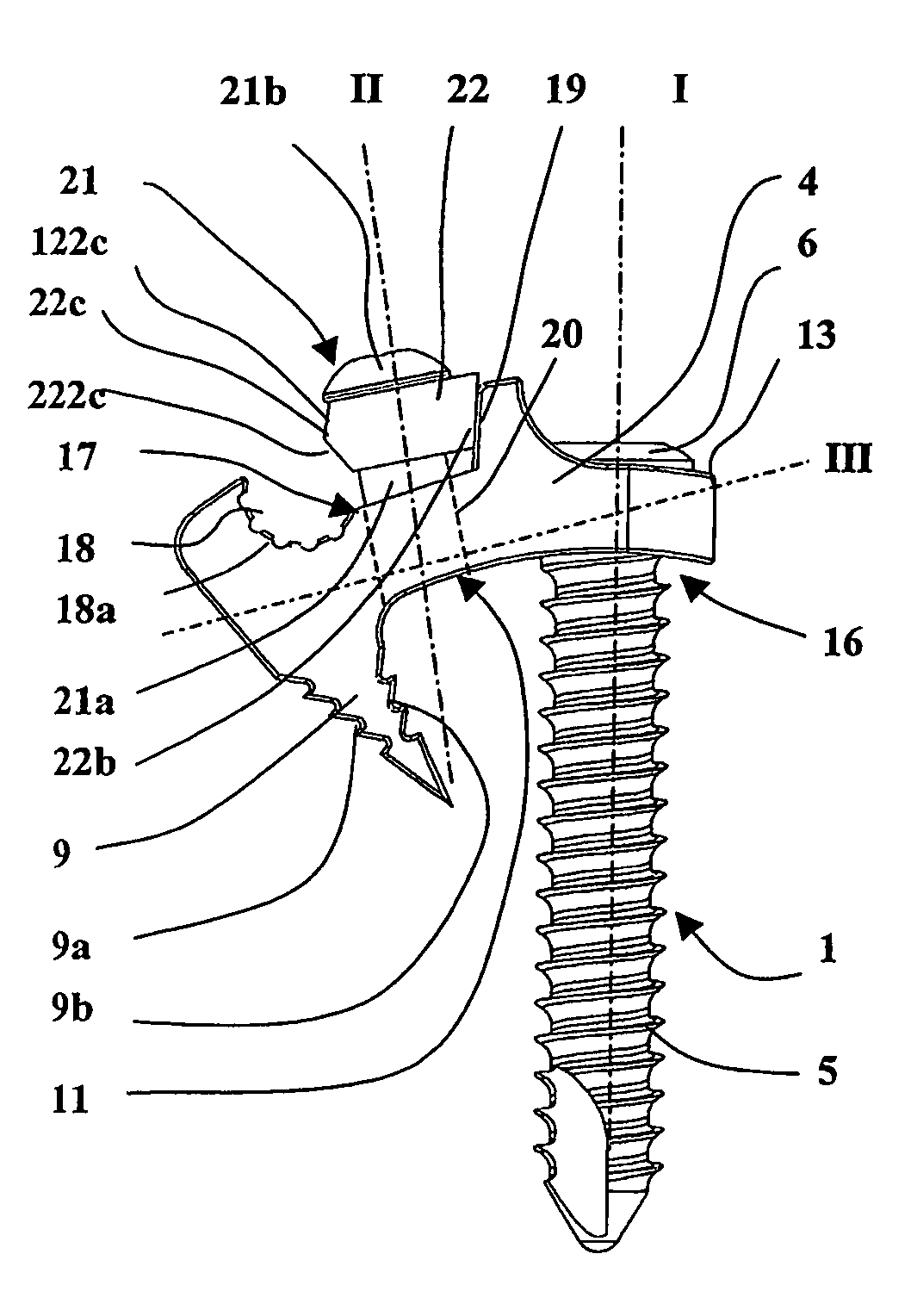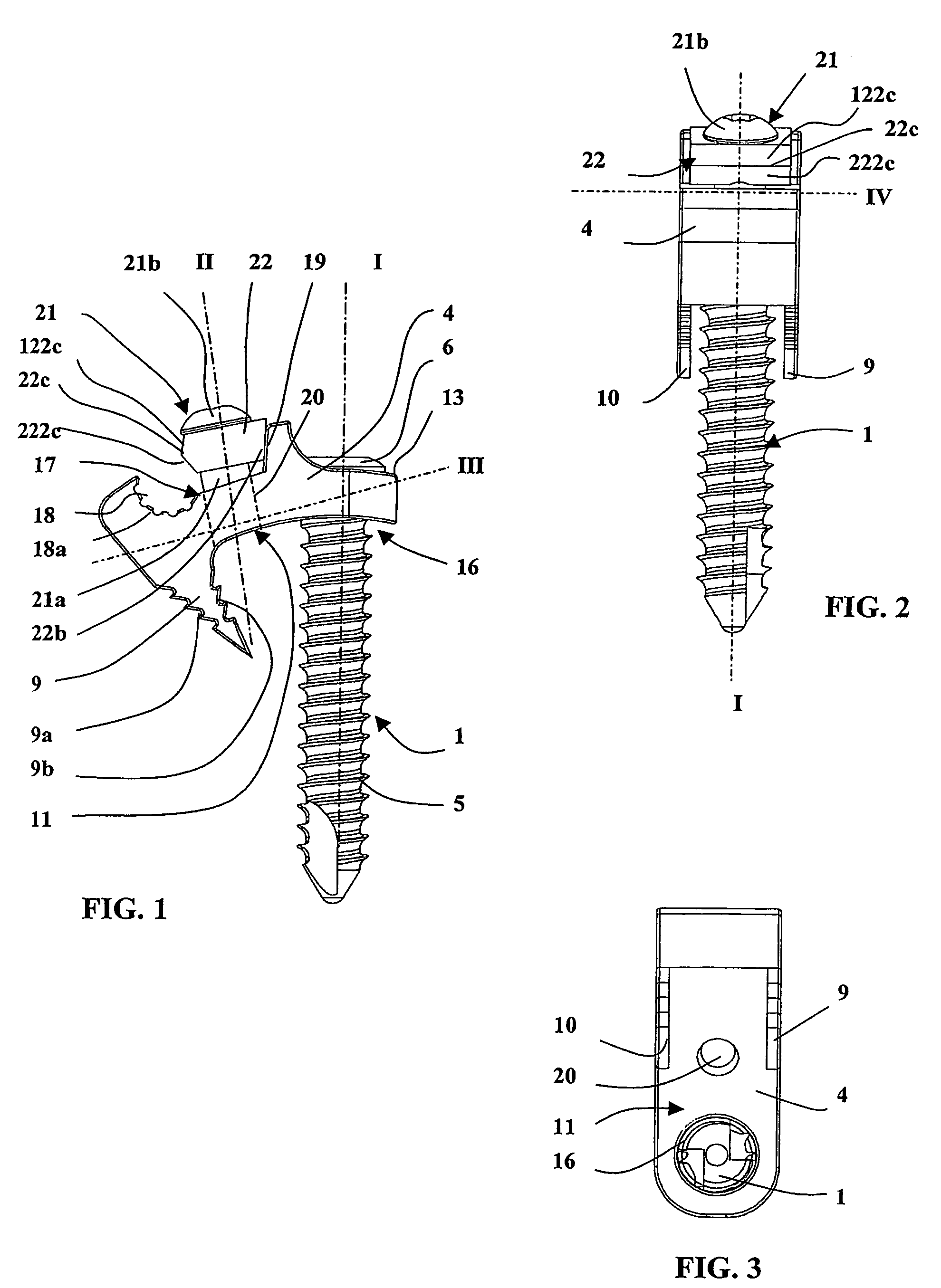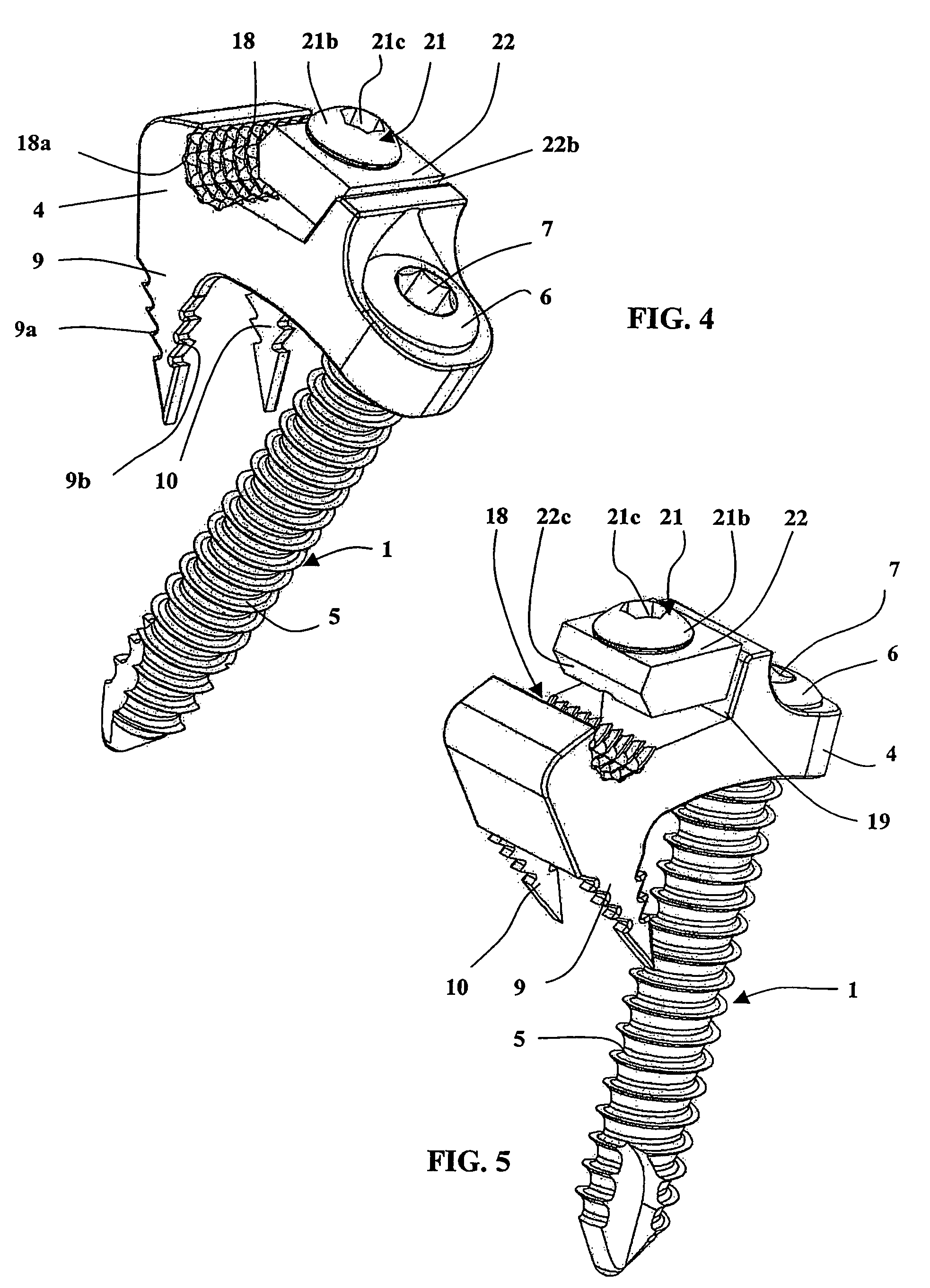Device comprising anterior plate for vertebral column support
a technology of anterior plate and vertebrae, which is applied in the direction of prosthesis, osteosynthesis devices, surgical staples, etc., can solve the problems of insufficient mechanical support provided by the device, major risk of sliding piece sliding and turning on the fastening rod, and not suited to anterolateral implantation on the lateral portion of the vertebrae, etc., to facilitate fitting and adjusting the position of the members, facilitate the fixing of the sliding piece, and facilitate the effect of fastening
- Summary
- Abstract
- Description
- Claims
- Application Information
AI Technical Summary
Benefits of technology
Problems solved by technology
Method used
Image
Examples
Embodiment Construction
[0027]Consider first FIG. 6, which shows a device of the invention for supporting the vertebral column when fitted to a vertebral column.
[0028]The device of the invention for supporting the vertebral column comprises at least one connecting sliding piece 4 that connects an anchoring screw 1 to a fastening rod 3. The connecting sliding piece 4 is fixed to a vertebra 2 by the anchoring screw 1. Similarly, a second connecting sliding piece 4a is fixed to a second vertebra 2a by a second anchoring screw 1a. The fastening rod 3 is fixed to both connecting sliding pieces 4 and 4a so that the device provides a mechanical connection between the two vertebrae 2 and 2a.
[0029]Refer now to FIGS. 1 to 5, which show the connecting sliding piece 4 and the anchoring screw 1.
[0030]The anchoring screw 1 comprises a threaded shank 5 conformed to be screwed into the bone of a vertebra and a head 6 with a hexagonal axial hole 7 adapted to have a screwing tool inserted into it.
[0031]The structure of the...
PUM
 Login to View More
Login to View More Abstract
Description
Claims
Application Information
 Login to View More
Login to View More - R&D
- Intellectual Property
- Life Sciences
- Materials
- Tech Scout
- Unparalleled Data Quality
- Higher Quality Content
- 60% Fewer Hallucinations
Browse by: Latest US Patents, China's latest patents, Technical Efficacy Thesaurus, Application Domain, Technology Topic, Popular Technical Reports.
© 2025 PatSnap. All rights reserved.Legal|Privacy policy|Modern Slavery Act Transparency Statement|Sitemap|About US| Contact US: help@patsnap.com



